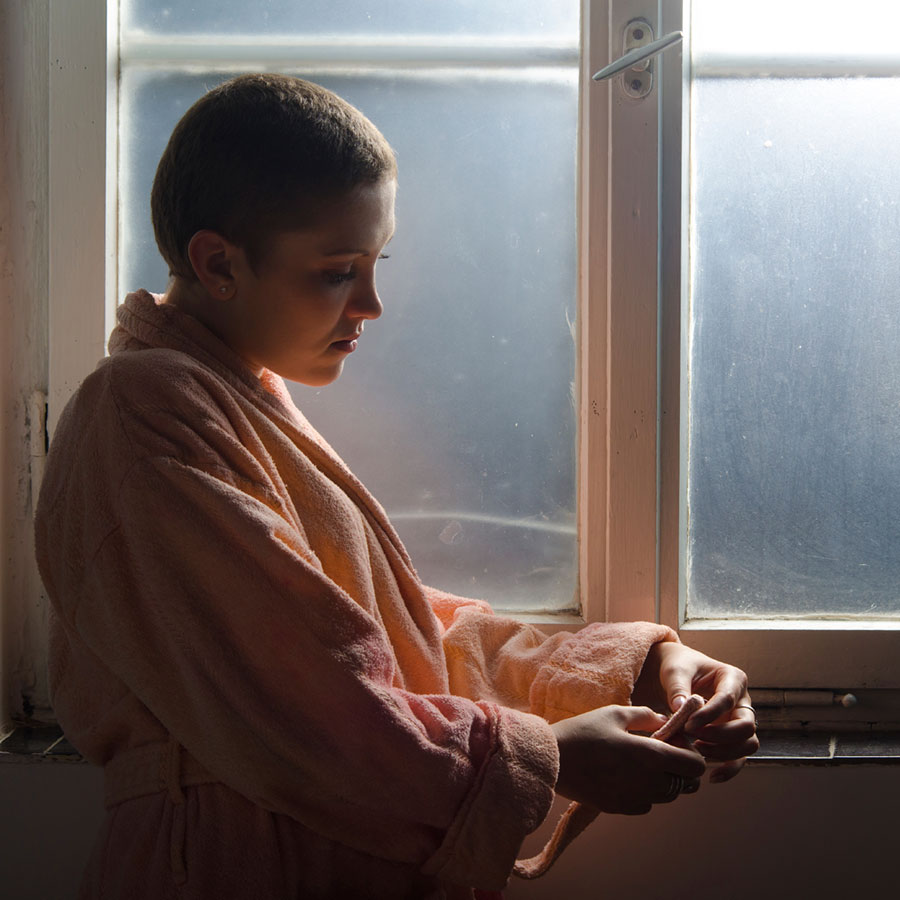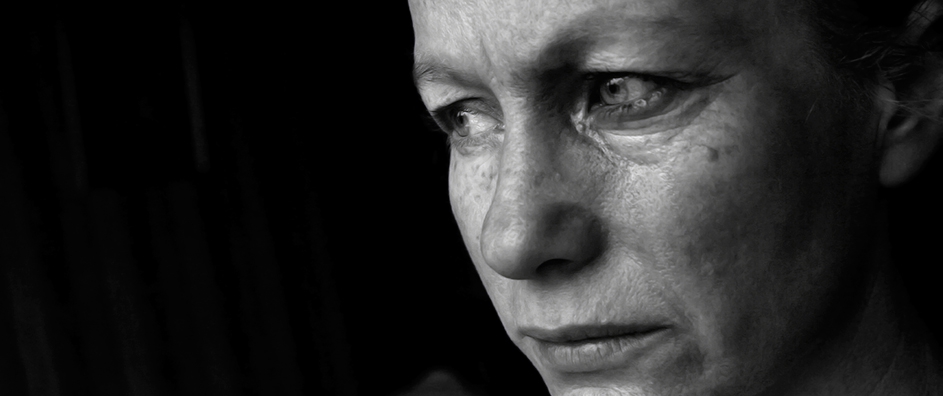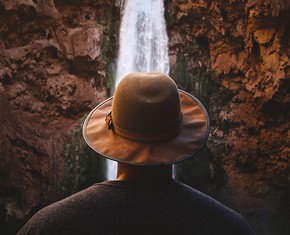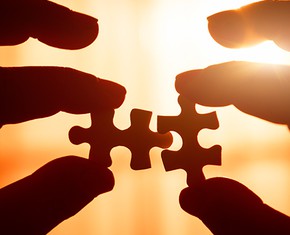The views expressed in our content reflect individual perspectives and do not represent the authoritative views of the Baha'i Faith.
I have spent a good part of my life trying to avoid pain at all costs; pain as a result of life’s tests and challenges, physical pain, the emotional pain of relationships, the pain of losing a loved one and a host of others. Pain can come in so many forms that no matter how I tried, in the end I found I could not avoid it. It wasn’t until recently that I came to terms with this reality, and realized I needed to take a new look at pain.
Life without pain can be physically dangerous. A young lady named Ashlyn Blocker in Patterson, Georgia cannot feel pain. As a baby she would chew on her lips and bite through her tongue while eating. She once even stuck a finger in her mouth and stripped the flesh from it. From that point on Ashlyn’s parents knew they had some tremendous challenges ahead. Ashlyn is among a tiny number of people in the world known to have congenital insensitivity to pain with anhidrosis, or CIPA. This rare genetic disorder makes her unable to feel pain. CIPA can be very dangerous because pain is there for a reason. Physical pain lets us know something is wrong and needs attention.
Emotional pain also lets us know when something is wrong and needs attention. It can function as a guide, leading us to healing and enlightenment:
Grief and sorrow do not come to us by chance, they are sent to us by the Divine Mercy for our own perfecting. – Abdu’l-Baha, Paris Talks, p. 50.
 In 2009, I was diagnosed with throat cancer. This coupled with my existing auto-immune illness made my doctors believe I wouldn’t make it through radiation or chemotherapy. The cancer created the most physically and emotionally painful time for me and my loved ones. But as strange as it sounds, if I could go back, I wouldn’t change anything, even though it was the worst experience of my life.
In 2009, I was diagnosed with throat cancer. This coupled with my existing auto-immune illness made my doctors believe I wouldn’t make it through radiation or chemotherapy. The cancer created the most physically and emotionally painful time for me and my loved ones. But as strange as it sounds, if I could go back, I wouldn’t change anything, even though it was the worst experience of my life.
Fortunately, after months of physical, emotional, and psychological pain, my cancer went into remission. What’s more, I learned lessons about gratitude, compassion and faith that only such an experience could teach me. Now when I go through painful times, I know that they strengthen my spirit and bring me closer to God. Pain helps us remember who can help us through all difficulties. When in the throes of an especially painful situation it can feel like the hardship will last forever, but if we are mindful of what this pain truly is, we can slow down the fear and try to see the end in the beginning:
Look ye not upon the present, fix your gaze upon the times to come. In the beginning, how small is the seed, yet in the end it is a mighty tree. Look ye not upon the seed, look ye upon the tree, and its blossoms and its leaves and its fruits. – Abdu’l-Baha, Selections from the Writings of Abdu’l-Baha, p 87.
When we see the purpose of pain, it can be much easier to bear. When I was in labor with my daughter I didn’t want any pain medication. That experience turned out to be the most excruciating physical pain I had known, and yet that pain became so much easier to accept because I knew it had an exalted ending and purpose. My aunt used to say, “Labor is a good pain because it’s pain with a purpose.” I have yet to find a woman who would choose to go through the pain of labor without knowing there was a precious baby waiting on the other end of it!
Do not run away from grief, oh soul. Look for the remedy inside the pain because the rose came from the thorn and the ruby came from a stone. – Rumi
When inspiration has become hidden, when we feel ready to give up, this is the time when healing can be found in the tenderness of pain itself. – Pema Chodron
O Son of Man! My calamity is My providence, outwardly it is fire and vengeance, but inwardly it is light and mercy. Hasten thereunto that thou mayest become an eternal light and an immortal spirit. This is My command unto thee, do thou observe it. – Baha’u’llah, The Hidden Words, p. 15.
Pain and sorrows can enhance our growth and perfection:
The more difficulties one sees in the world the more perfect one becomes. The more you plough and dig the ground the more fertile it becomes. The more you cut the branches of a tree the higher and stronger it grows. The more you put the gold in the fire the purer it becomes. The more you sharpen the steel by grinding the better it cuts. Therefore, the more sorrows one sees the more perfect one becomes… The more often the captain of a ship is in the tempest and difficult sailing the greater his knowledge becomes. Therefore I am happy that you have had great tribulations and difficulties… Strange it is that I love you and still I am happy that you have sorrows. – Abdu’l-Baha, Star of the West, Volume 8, p. 41.
When I first read this quote I read it aloud at a devotional gathering. When I got to the last sentence, “Strange it is that I love you and still I am happy that you have sorrows,” I got a catch in my throat and could barely finish the words. The poignancy of that concept brought me to blissful tears when I realized that my pain is not punishment or karma, but in fact just the opposite. It is a loving vehicle to bring me closer to my Creator:
Through many tribulations we must enter the kingdom of God. – Acts 14:22.
The mind and spirit of man advance when he is tried by suffering. The more the ground is ploughed the better the seed will grow, the better the harvest will be. Just as the plough furrows the earth deeply, purifying it of weeds and thistles, so suffering and tribulation free man from the petty affairs of this worldly life until he arrives at a state of complete detachment. His attitude in this world will be that of divine happiness. Man is, so to speak, unripe: the heat of the fire of suffering will mature him. Look back to the times past and you will find that the greatest men have suffered most. – Abdu’l-Baha, Paris Talks, p. 178.
We know that the greatest men and women have suffered the most; that their pain formed the path to their kindness and enlightenment. Emotional and physical pain are teachers that bring out the virtues and spiritual attributes of men and strengthen their relationship with the Creator. For there to be light, we must also have darkness. So it is with pain. We must have pain in order for us to know and appreciate comfort and joy. Perhaps what I once deemed unthinkable might actually be true: in this life we can’t avoid pain, so we should understand its purpose as a wise guide to lasting joy.
You May Also Like
Comments

















I've been having discussions with a friend recently about suffering. While everything in this article rings true to me, my friend would take issue with many of the points. He would say God is all powerful and could have designed a world without pain and suffering. He believes God can't truly love us and also allow so much suffering and evil in the world. He often mentions the atrocities ISIS comments, and says God allows such things.
My reply is that God is also all knowing, and He decided this was the best ...design for the world. He also gave us free will which allows evil actions. We might not always like or agree with this design, just as children often don't understand or agree with their parent's decisions. This sounds a little trite coming out of my mouth, but it might be the most accurate metaphor.
I look forward to reading more articles from this site and having more honest conversations with my friend.
"For the infidel, error -- for the faithful, faith;
For 'Attar's heart, an atom of Thy pain."
Beautiful, I have always thought, but very curious.
This beautifully written article has shed some light for me! Thank you, Kathy!
Ellen Ramer